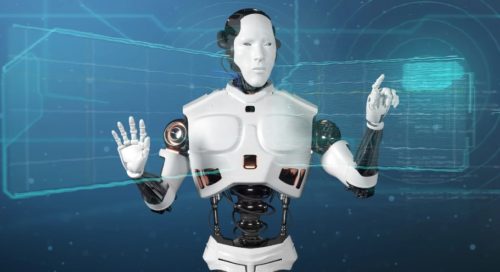AI Reshaping the Future of the Food Industry
When people talk about issues that are plaguing the food business, technology is not often the first thing that comes to mind. On the other hand, in the current situation, the automation of the food sector is absolutely necessary for the production and distribution of food.
The AI in Food Sciences sector has brought about a revolution in the producing, distributing, and consuming of food. Through the use of artificial intelligence technologies such as machine learning, data analytics, and computer vision, traditional agriculture techniques are being revolutionized, supply chain logistics are being optimized, and food safety standards are being improved.
Marketplace for Robotics and Automation in the Food Industry

As a result of the increased deployment of artificial intelligence and robots, the food industry is currently going through a considerable shift. When it comes to food production, the utilization of powerful machine learning algorithms results in increased accuracy and efficiency. It is possible for food enterprises to improve their appearance while also reducing their operational expenses by utilizing robotics to automate repetitive activities such as packing, sorting, and processing.
With the assistance of this data-driven strategy, food firms are able to cut down on waste, make decisions that are well-informed, and quickly adjust to new market trends. As a result of artificial intelligence taking care of everyday chores, individuals are free to devote their focus to delivering services and engaging in activities that require greater cognitive capacity.
This not only leads to an increase in production but also makes it possible to make better use of the available human resources. In general, the incorporation of artificial intelligence technology has resulted in considerable benefits. These benefits include the liberation of human capacity and the facilitation of individuals’ ability to focus on activities that call for their particular cognitive capacities.
AI to Food Science
The application of artificial intelligence (AI) is having a substantial impact on several facets of food science in the present day, including research, manufacturing, distribution, and consumption within the food business. To forecast the quality, safety, and shelf life of food, artificial intelligence algorithms examine huge databases.

Through the identification of factors that influence food qualities and the recommendation of adjustments to production parameters, these models contribute to the optimization of production processes, the reduction of waste, and the enhancement of product quality.
In terms of innovation, platforms that are powered by artificial intelligence can provide assistance to food scientists in the process of identifying novel ingredients, tastes, and formulations for the purpose of product development. Artificial intelligence algorithms speed up the process of discovering new food products and optimize their flavor, texture, and nutritional content by evaluating molecular structures, sensory profiles, and consumer preferences.
When it comes to quality control, image recognition systems and machine vision technologies that are powered by artificial intelligence can be utilized to check and sort food products based on quality parameters such as color, size, form, and flaws for the purpose of quality control. These technologies make it possible to automate quality control and guarantee that the quality of the product remains consistent.
Author Profile
- Blogger by Passion | Contributor to many Tech Blogs in the United Kingdom | Fascinated to Write Blogs in Business & Startup Niches |
Latest entries
 Tech Updates18th September 2025Advancing Audio-Visual Systems for Modern Work, Learning, and Public Spaces
Tech Updates18th September 2025Advancing Audio-Visual Systems for Modern Work, Learning, and Public Spaces Gaming29th May 2025Are Gaming Laptops Better Than Gaming PCs? A Comprehensive Comparison
Gaming29th May 2025Are Gaming Laptops Better Than Gaming PCs? A Comprehensive Comparison Tech Updates8th May 2025Are Smart Locks the Future?
Tech Updates8th May 2025Are Smart Locks the Future? Business6th March 2025Edward Thornton: A Notable Figure in the Investment World
Business6th March 2025Edward Thornton: A Notable Figure in the Investment World

